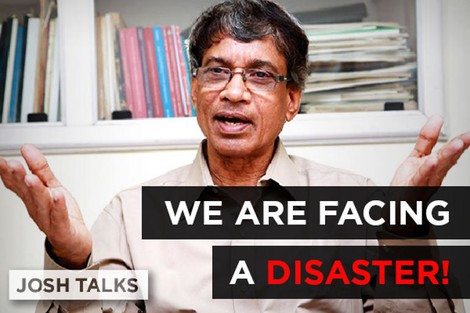Your podcast discovery platform
Curious minds select the most fascinating podcasts from around the world. Discover hand-piqd audio recommendations on your favorite topics.

piqer for: Climate and Environment Globalization and politics
Raksha Kumar is a multimedia journalist focusing on human rights, politics and social injustices. Since 2011, she has reported for The New York Times, BBC, Guardian, TIME, South China Morning Post, Foreign Policy, Scroll.in and The Hindu.
In March 2018, she was awarded the National Foundation for India Media Award for her reportage on land rights in India. In 2017, she was shortlisted for Kurt Schork Memorial Awards in International Journalism. For her work on land conflicts in India, she was awarded the Chameli Devi Award for Outstanding Media Personality in 2016.
As a reporter, her focus areas are land and forest rights of the most vulnerable communities. However, since these issues cannot be looked at in isolation, Raksha found herself increasingly reporting on armed conflict around resource extraction in places like Chhattisgarh and Kashmir.
In 2015, she wrote, shot and directed a documentary film on Rationalists in Contemporary India. It was aired by India's public broadcaster, Doordarshan. The film has been screened in 29 locations across the country until now.
The same year, Raksha was selected as a Chevening Fellow by the University of Westminster to research on Hindu Right in the UK. This helped Raksha build on her post graduate dissertation which was on Hindu Fundamentalists in India.
With a Fulbright Scholarship for Leadership Development, she went to the Columbia University in New York City to pursue a Masters in Science. As a student, she was offered the Scripps Howard Fellowship to report from Israel and the West Bank. Since 2011, Raksha has reported from 11 countries across the world.
Raksha worked as an editor at NDTV, leading English news channel in India. She was the editorial head of a two-hour prime time news show, where she lead a team of about 20 junior journalists.
A graduate of Lady Shri Ram College in New Delhi, Raksha was a dedicated student and a passionate public speaker.
Podcast: India's Growth Rate Story: An Illusion
India's federal government has constantly harped on how India's development story is a fairy tale. The finance minister, during his budget speech, foresaw a growth rate of more than 7%.
However, in this podcast simple questions are asked. Is GDP an indicator of overall development? Does higher GDP signify better quality of life?
Prof Janakarajan from the southern city of Chennai seems to believe so:
We are masking an impending disaster, and completely misunderstanding quality of life. What if our 'growth' is actually negative? What does our increasing GDP look like when we start accounting for the loss to our environment?
A reasonable look at India's growth would not paint a very rosy picture. For a population of more than 1.3 billion, with about 500 million poor people, the country needs inclusive development, which the GDP fails to show.
Entire rivers are being wiped out and populations are fighting over water. In such a situation, what good is a 7% growth?
Stay up to date – with a newsletter from your channel on Globalization and politics.
